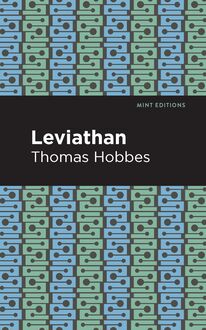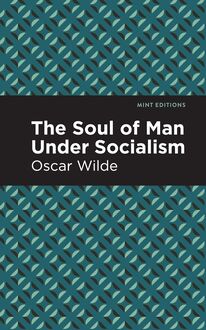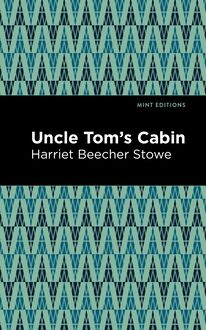-
 Univers
Univers
-
 Ebooks
Ebooks
-
 Livres audio
Livres audio
-
 Presse
Presse
-
 Podcasts
Podcasts
-
 BD
BD
-
 Documents
Documents
-
- Cours
- Révisions
- Ressources pédagogiques
- Sciences de l’éducation
- Manuels scolaires
- Langues
- Travaux de classe
- Annales de BEP
- Etudes supérieures
- Maternelle et primaire
- Fiches de lecture
- Orientation scolaire
- Méthodologie
- Corrigés de devoir
- Annales d’examens et concours
- Annales du bac
- Annales du brevet
- Rapports de stage
La lecture à portée de main
Vous pourrez modifier la taille du texte de cet ouvrage
Découvre YouScribe en t'inscrivant gratuitement
Je m'inscrisDécouvre YouScribe en t'inscrivant gratuitement
Je m'inscrisEn savoir plus
Vous pourrez modifier la taille du texte de cet ouvrage
En savoir plus

Description
“Uncle Tom’s Cabin is the most powerful and enduring work of art ever written about American slavery”-Alfred Kazin
“To expose oneself in maturity to Uncle Tom’s cabin may…prove a startling experience”-Edmund Wilson
In Uncle Tom’s Cabin, Harriet Beecher Stowe created America’s first black literary hero as well as the nation’s antecedent protest novel. The novel’s vast influence on attitudes towards African American slavery was considered an incitation towards the American Civil War; conjointly, its powerful anti-slavery message resonated with readers around the world at its time of publication.
With unashamed sentimentality and expressions of faith, Harriet Beecher Stowe, in Uncle Tom’s Cabin tells the story of the lives of African American slaves from a Kentucky plantation; The master’s maid, Eliza; her son, Henry; and, of course, Uncle Tom, the righteous and kind protagonist at the center of the book. When Arthur Selby, a Kentucky slave-owner decides to sell his slaves due to dire financial turns, Eliza runs away with her son, and Tom is sold to a slave trader named Haley. On a Mississippi river boat, Tom’s fortunes are revered after he rescues Eva, a young white girl, from drowning. Eva’s kind father is so moved by Tom’s bravery that he buys him from Haley and brings him into his New Orleans home. In the series of calamitous events that follow, Tom ultimately finds himself in the bondage of the diabolical master Simon Legree. Still provoking controversies to this day, this is one of American literature’s most important works of social justice.
With an eye-catching new cover, and professionally typeset manuscript, this edition of Uncle Tom’s Cabin is both modern and readable.
Sujets
Informations
| Publié par | Mint Editions |
| Date de parution | 15 novembre 2020 |
| Nombre de lectures | 2 |
| EAN13 | 9781513265391 |
| Langue | English |
| Poids de l'ouvrage | 1 Mo |
Informations légales : prix de location à la page 0,0500€. Cette information est donnée uniquement à titre indicatif conformément à la législation en vigueur.
Extrait
Uncle Tom’s Cabin
Harriet Beecher Stowe
Uncle Tom’s Cabin was first published in 1852.
This edition published by Mint Editions 2020.
ISBN 9781513264714 | E-ISBN 9781513265391
Published by Mint Editions®
minteditionbooks.com
Publishing Director: Jennifer Newens
Project Manager: Gabrielle Maudiere
Design & Production: Rachel Lopez Metzger
C ONTENTS V OLUME I I. I N W HICH THE R EADER I S I NTRODUCED TO A M AN OF H UMANITY II. T HE M OTHER III. T HE H USBAND AND F ATHER IV. A N E VENING IN U NCLE T OM’S C ABIN V. S HOWING THE F EELINGS OF L IVING P ROPERTY ON C HANGING O WNERS VI. D ISCOVERY VII. T HE M OTHER’S S TRUGGLE VIII. E LIZA’S E SCAPE IX. I N W HICH I T A PPEARS T HAT A S ENATOR I S B UT A M AN X. T HE P ROPERTY I S C ARRIED O FF XI. I N W HICH P ROPERTY G ETS INTO AN I MPROPER S TATE OF M IND XII. S ELECT I NCIDENT OF L AWFUL T RADE XIII. T HE Q UAKER S ETTLEMENT XIV. E VANGELINE XV. O F T OM’S N EW M ASTER, AND V ARIOUS O THER M ATTERS XVI. T OM’S M ISTRESS AND H ER O PINIONS XVII. T HE F REEMAN’S D EFENCE XVIII. M ISS O PHELIA’S E XPERIENCES AND O PINIONS V OLUME II XIX. M ISS O PHELIA’S E XPERIENCES AND O PINIONS C ONTINUED XX. T OPSY XXI. K ENTUCK XXII. “T HE G RASS W ITHERETH — THE F LOWER F ADETH” XXIII. H ENRIQUE XXIV. F ORESHADOWINGS XXV. T HE L ITTLE E VANGELIST XXVI. D EATH XXVII. “T HIS I S THE L AST OF E ARTH” XXVIII. R EUNION XXIX. T HE U NPROTECTED XXX. T HE S LAVE W AREHOUSE XXXI. T HE M IDDLE P ASSAGE XXXII. D ARK P LACES XXXIII. C ASSY XXXIV. T HE Q UADROON’S S TORY XXXV. T HE T OKENS XXXVI. E MMELINE AND C ASSY XXXVII. L IBERTY XXXVIII. T HE V ICTORY XXXIX. T HE S TRATAGEM XL. T HE M ARTYR XLI. T HE Y OUNG M ASTER XLII. A N A UTHENTIC G HOST S TORY XLIII. R ESULTS XLIV. T HE L IBERATOR XLV. C ONCLUDING R EMARKS
VOLUME I
Chapter I
I N W HICH THE R EADER I S I NTRODUCED TO A M AN OF H UMANITY
Late in the afternoon of a chilly day in February, two gentlemen were sitting alone over their wine, in a well-furnished dining parlor, in the town of P ______ , in Kentucky. There were no servants present, and the gentlemen, with chairs closely approaching, seemed to be discussing some subject with great earnestness.
For convenience sake, we have said, hitherto, two gentlemen . One of the parties, however, when critically examined, did not seem, strictly speaking, to come under the species. He was a short, thick-set man, with coarse, commonplace features, and that swaggering air of pretension which marks a low man who is trying to elbow his way upward in the world. He was much over-dressed, in a gaudy vest of many colors, a blue neckerchief, bedropped gayly with yellow spots, and arranged with a flaunting tie, quite in keeping with the general air of the man. His hands, large and coarse, were plentifully bedecked with rings; and he wore a heavy gold watch-chain, with a bundle of seals of portentous size, and a great variety of colors, attached to it,—which, in the ardor of conversation, he was in the habit of flourishing and jingling with evident satisfaction. His conversation was in free and easy defiance of Murray’s Grammar, and was garnished at convenient intervals with various profane expressions, which not even the desire to be graphic in our account shall induce us to transcribe.
His companion, Mr. Shelby, had the appearance of a gentleman; and the arrangements of the house, and the general air of the housekeeping, indicated easy, and even opulent circumstances. As we before stated, the two were in the midst of an earnest conversation.
“That is the way I should arrange the matter,” said Mr. Shelby.
“I can’t make trade that way—I positively can’t, Mr. Shelby,” said the other, holding up a glass of wine between his eye and the light.
“Why, the fact is, Haley, Tom is an uncommon fellow; he is certainly worth that sum anywhere,—steady, honest, capable, manages my whole farm like a clock.”
“You mean honest, as niggers go,” said Haley, helping himself to a glass of brandy.
“No; I mean, really, Tom is a good, steady, sensible, pious fellow. He got religion at a camp-meeting, four years ago; and I believe he really did get it. I’ve trusted him, since then, with everything I have,—money, house, horses,—and let him come and go round the country; and I always found him true and square in everything.”
“Some folks don’t believe there is pious niggers Shelby,” said Haley, with a candid flourish of his hand, “but I do . I had a fellow, now, in this yer last lot I took to Orleans—‘t was as good as a meetin, now, really, to hear that critter pray; and he was quite gentle and quiet like. He fetched me a good sum, too, for I bought him cheap of a man that was ’bliged to sell out; so I realized six hundred on him. Yes, I consider religion a valeyable thing in a nigger, when it’s the genuine article, and no mistake.”
“Well, Tom’s got the real article, if ever a fellow had,” rejoined the other. “Why, last fall, I let him go to Cincinnati alone, to do business for me, and bring home five hundred dollars. ‘Tom,’ says I to him, ‘I trust you, because I think you’re a Christian—I know you wouldn’t cheat.’ Tom comes back, sure enough; I knew he would. Some low fellows, they say, said to him—Tom, why don’t you make tracks for Canada?’ ’Ah, master trusted me, and I couldn’t,’—they told me about it. I am sorry to part with Tom, I must say. You ought to let him cover the whole balance of the debt; and you would, Haley, if you had any conscience.”
“Well, I’ve got just as much conscience as any man in business can afford to keep,—just a little, you know, to swear by, as ’t were,” said the trader, jocularly; “and, then, I’m ready to do anything in reason to ’blige friends; but this yer, you see, is a leetle too hard on a fellow—a leetle too hard.” The trader sighed contemplatively, and poured out some more brandy.
“Well, then, Haley, how will you trade?” said Mr. Shelby, after an uneasy interval of silence.
“Well, haven’t you a boy or gal that you could throw in with Tom?”
“Hum!—none that I could well spare; to tell the truth, it’s only hard necessity makes me willing to sell at all. I don’t like parting with any of my hands, that’s a fact.”
Here the door opened, and a small quadroon boy, between four and five years of age, entered the room. There was something in his appearance remarkably beautiful and engaging. His black hair, fine as floss silk, hung in glossy curls about his round, dimpled face, while a pair of large dark eyes, full of fire and softness, looked out from beneath the rich, long lashes, as he peered curiously into the apartment. A gay robe of scarlet and yellow plaid, carefully made and neatly fitted, set off to advantage the dark and rich style of his beauty; and a certain comic air of assurance, blended with bashfulness, showed that he had been not unused to being petted and noticed by his master.
“Hulloa, Jim Crow!” said Mr. Shelby, whistling, and snapping a bunch of raisins towards him, “pick that up, now!”
The child scampered, with all his little strength, after the prize, while his master laughed.
“Come here, Jim Crow,” said he. The child came up, and the master patted the curly head, and chucked him under the chin.
“Now, Jim, show this gentleman how you can dance and sing.” The boy commenced one of those wild, grotesque songs common among the negroes, in a rich, clear voice, accompanying his singing with many comic evolutions of the hands, feet, and whole body, all in perfect time to the music.
“Bravo!” said Haley, throwing him a quarter of an orange.
“Now, Jim, walk like old Uncle Cudjoe, when he has the rheumatism,” said his master.
Instantly the flexible limbs of the child assumed the appearance of deformity and distortion, as, with his back humped up, and his master’s stick in his hand, he hobbled about the room, his childish face drawn into a doleful pucker, and spitting from right to left, in imitation of an old man.
Both gentlemen laughed uproariously.
“Now, Jim,” said his master, “show us how old Elder Robbins leads the psalm.” The boy drew his chubby face down to a formidable length, and commenced toning a psalm tune through his nose, with imperturbable gravity.
“Hurrah! bravo! what a young ’un!” said Haley; “that chap’s a case, I’ll promise. Tell you what,” said he, suddenly clapping his hand on Mr. Shelby’s shoulder, “fling in that chap, and I’ll settle the business—I will. Come, now, if that ain’t doing the thing up about the rightest!”
At this moment, the door was pushed gently open, and a young quadroon woman, apparently about twenty-five, entered the room.
There needed only a glance from the child to her, to identify her as its mother. There was the same rich, full, dark eye, with its long lashes; the same ripples of silky black hair. The brown of her complexion gave way on the cheek to a perceptible flush, which deepened as she saw the gaze of the strange man fixed upon her in bold and undisguised admiration. Her dress was of the neatest possible fit, and set off to advantage her finely moulded shape;—a delicately formed hand and a trim foot and ankle were items of appearance that did not escape the quick eye of the trader, well used to run up at a glance the points of a fine female article.
“Well, Eliza?” said her master, as she stopped and looked hesitatingly at him.
“I was looking for Harry, please, sir;” and the boy bounded toward her, showing his spoils, which he had gathered in the skirt of his robe.
“Well, take him away then,” said Mr. Shelby; and hastily she withdrew, carrying the child on her arm.
“By Jupiter,” said the trader, turning to him in admiration, “there’s an article, now! You might make your fortune on that ar gal in Orleans, any day. I’ve seen over a thousand, in my day, paid down for gals not a bit handsomer.”
“I don’t want to make my fortune on her,” said Mr. Sh
-
 Univers
Univers
-
 Ebooks
Ebooks
-
 Livres audio
Livres audio
-
 Presse
Presse
-
 Podcasts
Podcasts
-
 BD
BD
-
 Documents
Documents
-
Jeunesse
-
Littérature
-
Ressources professionnelles
-
Santé et bien-être
-
Savoirs
-
Education
-
Loisirs et hobbies
-
Art, musique et cinéma
-
Actualité et débat de société
-
Jeunesse
-
Littérature
-
Ressources professionnelles
-
Santé et bien-être
-
Savoirs
-
Education
-
Loisirs et hobbies
-
Art, musique et cinéma
-
Actualité et débat de société
-
Actualités
-
Lifestyle
-
Presse jeunesse
-
Presse professionnelle
-
Pratique
-
Presse sportive
-
Presse internationale
-
Culture & Médias
-
Action et Aventures
-
Science-fiction et Fantasy
-
Société
-
Jeunesse
-
Littérature
-
Ressources professionnelles
-
Santé et bien-être
-
Savoirs
-
Education
-
Loisirs et hobbies
-
Art, musique et cinéma
-
Actualité et débat de société
- Cours
- Révisions
- Ressources pédagogiques
- Sciences de l’éducation
- Manuels scolaires
- Langues
- Travaux de classe
- Annales de BEP
- Etudes supérieures
- Maternelle et primaire
- Fiches de lecture
- Orientation scolaire
- Méthodologie
- Corrigés de devoir
- Annales d’examens et concours
- Annales du bac
- Annales du brevet
- Rapports de stage




















